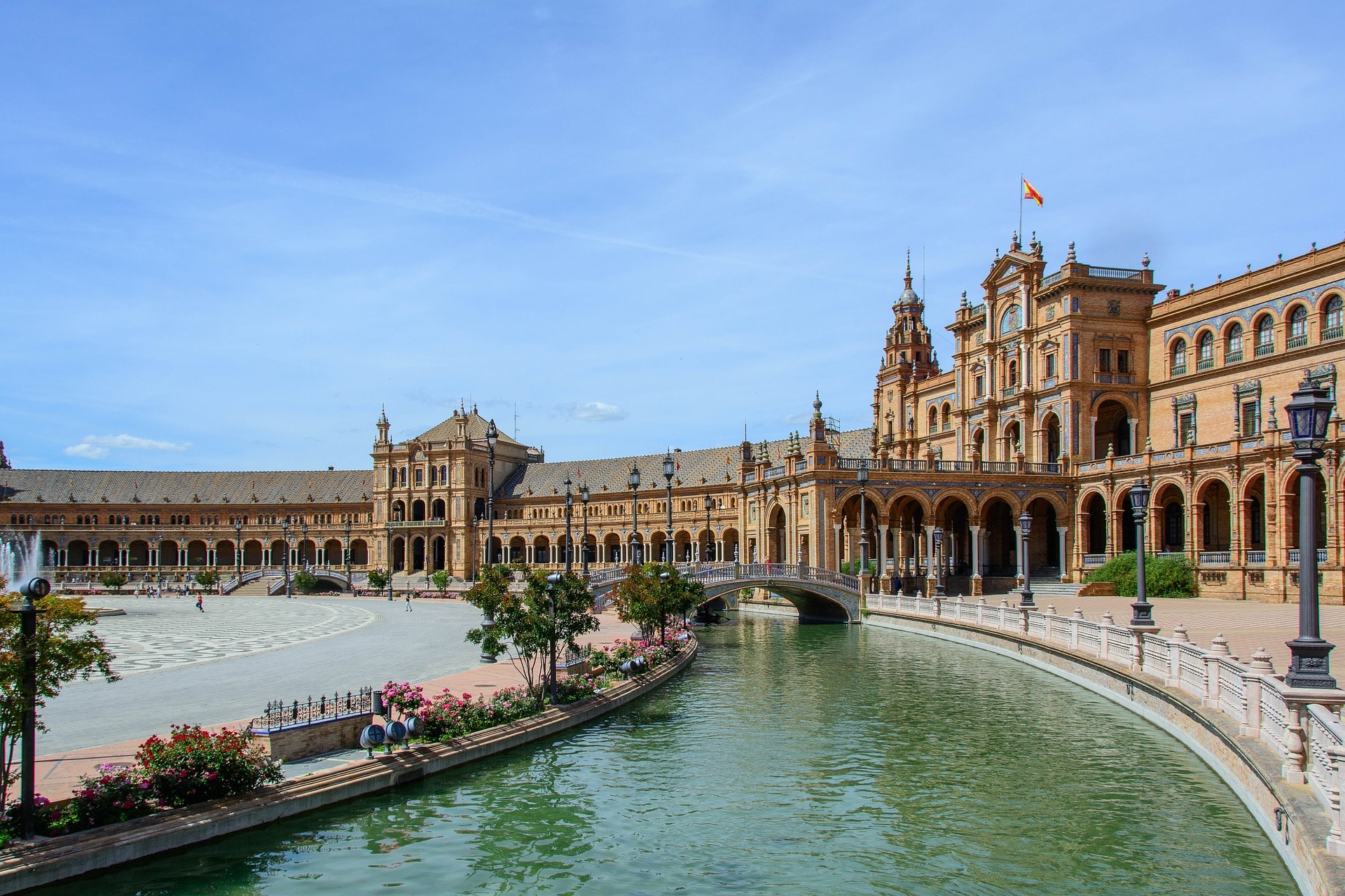Centrally located in the heart of the Iberian peninsula, Spain is an accessible destination for European retirees.
Life is sweet here: not only does Spain have one of the highest levels of sunshine in Europe, it is also a country with a complex history, Michelin-starred gastronomy, and a diverse terrain within its 500,000 square kilometres of surface area. Due to its geographical location, its culture has become infused with both African and European elements, offering a plethora of cultural and historical relics scattered across the country. 5 different languages are still spoken across the country, with Castilian Spanish being the official language.

Average journey times:
- Paris – Madrid: 1 hour 39 mins
- London – Madrid: 1 hour 54 mins
- New York – Madrid: 7 hours 17 mins
- Los Angeles – Madrid: 11 hours 35 mins
- Sydney – Madrid: 21 hours 28 mins
Property price per sqm: 2000 € to 3000 €
HDI ranking: 27/196 countries
HDI: 0.884 High human development index based on 3 criteria healthcare, education and longevity
Big Mac Index: 4,8 USD
1 EUR: 1,13 USD
How can you live in Spain
Residency requirements:
Visas: All foreigners who are nationals of a Member State of the European Union, Norwegian, Icelandic, Liechtenstein or Swiss must obtain a resident visa for stays longer than 90 days. This long-term visa allows residence on Spanish territory but does not allow employment.
As a national of a European Union country, no paperwork is needed to enter Spain if your stay does not exceed three months. However, for longer stays in Spain, you will need to obtain a residence permit, which will be valid for five years and can be renewed. You can easily obtain this permit with European citizenship. It is possible that the Spanish administrative services will ask you to apply for proof of health insurance and sufficient financial resources. It should also be noted that the right of residence of a European citizen in a country of the European Union is valid for all members of his/her family.
Non-europeans can apply for 1 of 3 long-term visas: work visa, student visa, or visa for retirement or family.
Housing in Spain:
If relocating to city centers of the larger cities such as Madrid, Barcelona, or Seville, prices will be higher and options will be limited to furnished or unfurnished apartments/flats. But it is possible to find reasonably priced accommodation, in addition to free-standing houses and villas, in the suburbs, countryside, or in smaller towns.
Taxation:
Taxation in Spain will depend on your tax residency status. In most cases, you would be considered a tax resident of Spain if one or more of the following applies to you: (1) You have spent more than 183 days in Spain in one calendar year (2) The majority of your professional activities are conducted in Spain (i.e. you are employed or self employed in Spain) (3) Your family lives in Spain (i.e. spouse or dependent children)
If you become a tax resident in Spain, you will be liable for income tax on worldwide income earned, post personal allowances and deductions. Your income tax rate is based on a sliding scale depending on annual income. You will be liable for both national and regional taxes.
If you don’t meet the requirements above and are considered non-resident, you will be taxed only on income earned in Spain. This is charged at a fixed rate and does not permit any personal allowances or deductions.
Safety:
Spain is considered to be a relatively safe place to visit and reside. The rate of violent crime is low in Spain compared to other European countries, the greatest threat being the usual petty crimes such as pickpocketing and bag-snatching in large cities. Spain has had its share of international and national terrorist attacks but locals and other residents of Spain barely bat an eye at terrorist threats these days.

